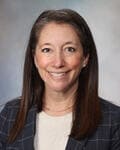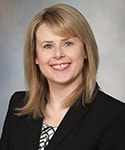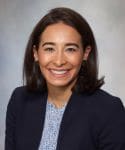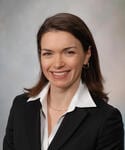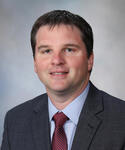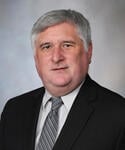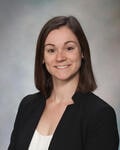Meet The Faculty
/prod01/channel_2/media/mccms/content-assets/academics/residencies-and-fellowships/clinical-neuropsychology-fellowship-florida/department-and-faculty/clin-neur-flshp-fla-1024X512-faculty-page-photo.png)
Mayo Clinic's Department of Psychiatry and Psychology provides diagnosis and treatment evaluations for patients with neurological disorders, cognitive impairment related to medical or psychiatric illness, and behavioral or psychological problems associated with a variety of medical conditions.
Research interests among faculty members include normal aging, cross-cultural neuropsychology, neurodegenerative conditions (such as Alzheimer's disease, Lewy body disease and motor neuron disease), cerebrovascular disease, neurosurgical interventions for movement disorders, organ transplantation, cancer prevention, and sleep disorders.
All neuropsychology faculty are board-certified and American Academy of Clinical Neuropsychology members. The department's psychiatrists have particular expertise in neuropsychiatry, psychopharmacology, sleep disorders, and organ transplantation.
From the program director
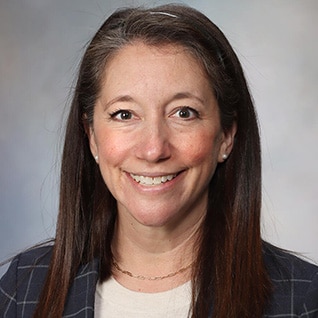 Welcome to the Clinical Neuropsychology Postdoctoral Fellowship at Mayo Clinic in Jacksonville, Florida. We offer a major emphasis on training in adult clinical neuropsychology per Houston Conference Guidelines (soon to be Minnesota Conference Guidelines). We are a member program of the Association for Postdoctoral Programs in Clinical Neuropsychology.
Welcome to the Clinical Neuropsychology Postdoctoral Fellowship at Mayo Clinic in Jacksonville, Florida. We offer a major emphasis on training in adult clinical neuropsychology per Houston Conference Guidelines (soon to be Minnesota Conference Guidelines). We are a member program of the Association for Postdoctoral Programs in Clinical Neuropsychology.
Historically, we have trained one fellow each two-year cycle. During the second year of the 2025-2027 training cycle, the fellow will be joined by a second fellow with an overlapping training cycle of 2026-2028. This change reflects a shift for our program as we have been granted the opportunity to grow our training program, now recruiting one fellow each year. We collaborate with learners to create individually tailored training experiences in clinical practice, research, and teaching. We train by the Mayo Clinic philosophy that "the needs of the patient come first” while also recognizing that the needs of the learner come first. Our program is one of the few in existence that executes training according to the learner’s objectives rather than service line demands.
As your program director, I am committed to connecting you to a broad range of experiences and resources that allow you to build a strong career in clinical neuropsychology. I am your advocate. We offer unique training experiences. We have three major clinical rotations with associated specific didactics. Additionally, we offer shadowing opportunities to learn from related specialties and disciplines important to our work as clinical neuropsychologists. Graduates of our program have the knowledge and skills to apply for board eligibility through the American Board of Clinical Neuropsychology. Most of our program graduates have active careers in academic medicine.
Our clinical rotations involve conventional neuropsychological evaluation, procedural work (e.g., operating room, angiography suite), and intervention service lines. Our outpatient work includes assessment, consultation, rehabilitation intervention, education, and addressing psychosocial processes of adjustment. We recognize the dynamicity of training and learning. As such, we capitalize on your growth over the 24-month training cycle by gradually increasing your autonomy and the complexity of your responsibilities. We provide direct collaborative supervision in all clinical practice, research, and teaching. Our faculty members have diverse backgrounds, interests, and expertise clinically, educationally and in research. We are a passionate group with an overwhelming commitment to our specialty at local, regional, national, and international levels.
Mayo Clinic is a destination medical center; we serve a highly diverse patient population. We provide care to our local neighbors in the Jacksonville area, but also frequently see patients from other states and from all over the world. This is part of what makes Mayo Clinic in Jacksonville, Florida, such a unique training institution.
Jacksonville and its surrounding area combine a small-town feel with the benefits of a metropolitan city. The climate is perfect for outdoor activities that can be enjoyed throughout the year. The culture at Mayo Clinic and our location in Northeast Florida help to boost the wellness of our trainees and support an optimal work-life balance.
We hope this information provides a glimpse of the opportunities available at Mayo Clinic and our dedication to the education, success, and well-being of our neurology residents. Contact us if you have any questions: flaneuropsych@mayo.edu.
Beth Rush, Ph.D., ABPP-CN, RP
Clinical Neuropsychology Postdoctoral Fellowship Program Director
Program faculty
In addition to caring for patients in their clinical practices, Mayo Clinic Psychiatry and Psychology faculty members are committed to teaching and facilitating the growth of medical knowledge. Many of our faculty are recognized leaders in their fields and have published and lectured extensively.
You have direct access to these individuals throughout the Clinical Neuropsychology Fellowship.
|
|
Beth Rush, Ph.D., ABPP-CN, RPProgram Director Dr. Rush is board certified by the American Board of Professional Psychology in both clinical neuropsychology and rehabilitation psychology. She has served as Associate Program Director (2008-2010) and Program Director (2010-present) for the Mayo Clinic Clinical Florida Neuropsychology Postdoctoral Fellowship. She is a Senior Fellow at the Mayo Clinic College of Medicine and Science Academy of Educational Excellence. Dr. Rush has made a career commitment to standards for training and practice in clinical neuropsychology. She served on the Board of Directors for the Association for Postdoctoral Programs in Clinical Neuropsychology (2010-2018), the American Board of Clinical Neuropsychology (2017-2023), and as a delegate to the Minnesota Conference (2022). Dr. Rush’s professional responsibilities involve integrative work across clinical care, education, and research. Her clinical and research work centers on helping individuals understand and adjust to brain conditions. Dr. Rush enjoys advancing cognitive and behavioral phenotyping of complicated genetic and medical diseases. Most recently she works in CSF1R-related leukoencephalopathy, motor neuron disease, complex neurogenetic disorders, and neuro-autoimmune disease. She works to diagnose, conceptualize, and offer treatment to individuals with functional neurological disorder and to teach other medical providers about functional neurological disorder. |
|
|
Cady Block, Ph.D., ABPP-CNAssociate Program Director
Dr. Block is a board-certified clinical neuropsychologist and Associate Professor. She is the Associate Program Director for the Mayo Clinic Florida Clinical Neuropsychology Postdoctoral Fellowship (2025 – present). Her clinical and research interests include pre/postsurgical neuropsychological evaluations of persons with epilepsy and brain tumors as well as medical neuropsychology.
Dr. Block has a passion for neuropsychology education, training, mentorship, and professional development. She is the editor of The Neuropsychologist’s Roadmap: A Training and Career Guide as well as author of its companion workbook, The Neuropsychologist’s Workbook: A Hands-On Roadmap to Becoming a Neuropsychologist. She has been a contributor to the development of neuropsychology specialty training and education guidelines including the APA CRSPPP taxonomy (2018) and Minnesota Update Conference (2022). She is co-founder and former Executive Board member of KnowNeuropsychology and serves as Co-Director of New2Neuropsychology, both of which are international education and advocacy initiatives in neuropsychology.
More broadly, Dr. Block is highly involved in multiple national and international neuropsychology organizations. She has served roles within the Society for Clinical Neuropsychology, International Neuropsychological Society and its epilepsy special interest group, National Academy of Neuropsychology, American Academy of Clinical Neuropsychology, and the Clinical Neuropsychology Synarchy.
|
|
|
Paula Aduen, Ph.D.
Dr. Aduen is a clinical neuropsychologist and Assistant Professor of Psychiatry and Psychology at Mayo Clinic in Jacksonville. She serves as Core Faculty for the Mayo Clinic Florida Clinical Neuropsychology Postdoctoral Fellowship.
Her clinical interests include neuropsychological evaluation of neurodegenerative diseases, including cognitive characterization of preclinical Alzheimer’s disease, and cross-cultural neuropsychology. She has expertise in the utilization and interpretation of culturally and linguistically appropriate cognitive assessment within a biopsychosocial framework. She is dedicated to the provision of culturally competent neuropsychological services for patients and training the next generation of neuropsychologists in multicultural neuropsychology.
Her research interests include characterization of lifetime chronic stress and coping as it relates to cognition and risk for Alzheimer’s disease and related dementias (ADRC) among historically underrepresented communities. She is currently primary investigator of a study examining these factors in Spanish-speaking Latinos living in the United States. She is a co-investigator within the Mayo Clinic Alzheimer’s Disease Research Center (ADRC) Outreach, Recruitment, and Engagement Core. She is devoted to forging relationships with historically understudied, underrepresented, and underserved communities to improve inclusion of diverse older adults in clinical research.
|
|
|
Melanie Chandler, Ph.D., ABPP-CNDr. Chandler is a board-certified clinical neuropsychologist and Chair of the Division of Psychology/Vice Chair Department of Psychiatry and Psychology at Mayo Clinic in Jacksonville. Dr. Chandler’s professional responsibilities include a mixture of administration, research, patient care, and teaching. She has been consistently funded for the last 15+ years to conduct research into behavioral interventions in Mild Cognitive Impairment (MCI), including funding from the Alzheimer’s Association, Florida Department of Health, NIH-NINR, and PCORI. She co-founded the Healthy Actions to Benefit Independence and Thinking program that provides behavioral interventions and rehabilitation techniques in patients with MCI offered now at multiple major medical centers, and she leads the Ralph C. Wilson Jr. Foundation Endowment for the HABIT Program at the Mayo Clinic. |
|
|
David Sabsevitz, Ph.D., ABPP-CNDr. Sabsevitz is a practicing neuropsychologist and associate professor at Mayo Clinic in Jacksonville, Florida. He has a primary appointment in the Department of Psychiatry and Psychology and a joint appointment in the Department of Neurosurgery. He is board certified by the American Board of Professional Psychology in clinical neuropsychology and specializes in the evaluation and treatment of adults with neurological, behavioral, and developmental disorders. Dr. Sabsevitz serves as Core Faculty for the postdoctoral fellowship in Clinical Neuropsychology. His clinical interests focus on the pre-surgical evaluation of brain tumor and epilepsy patients, functional brain mapping, and extra- and intraoperative brain mapping to assist surgical planning in these patient populations. He leads the awake craniotomy neuropsychology mapping service line at Mayo Clinic. He has numerous publications in peer-reviewed scientific journals and is widely recognized for developing innovative brain mapping techniques for awake brain tumor and epilepsy surgery. Dr. Sabsevitz is also very involved in teaching and education and lectures regularly at both the regional and national levels. |
|
|
Tanis Ferman, Ph.D., ABPP-CNDr. Ferman is a Professor of Psychology and board certified by the American Board of Professional Psychology in Clinical Neuropsychology. She serves as a co-investigator for the Mayo Alzheimer Disease Research Center and for several other funded longitudinal studies of Dementia with Lewy bodies (DLB) and REM Sleep Behavior Disorder (RBD). She has served on the Scientific Advisory Board for the Lewy Body Dementia Association since 2004. Her clinical and research interests include neurodegenerative disease, movement disorders, sleep disorders, neuropsychiatry, and pre-surgical evaluations for organ transplantation. Focused research studies involve the early detection, assessment, and characterization of the clinical and cognitive features of DLB, and understanding how neuroimaging and neuropathology relate to the clinical presentation and disease trajectory of DLB. In addition, she is dedicated to providing caregivers and patients with guidance and strategies to navigate the challenges and changes associated with their neurologic and medical conditions. |
|
|
John Lucas, Ph.D., ABPP-CNDr. Lucas is a board-certified clinical neuropsychologist and Professor of Psychology at the Mayo Clinic College of Medicine and Science. He has over 30 years of clinical experience and is the past president of the American Board of Clinical Neuropsychology (ABCN; 2013-2015). He currently serves as ABCN Examinations Chair. His research interests currently focus on topics related to aging and dementia, including the development and evaluation of innovative, community-based solutions to dementia-related health disparities in minoritized populations. He is the PI and Director of the Outreach, Recruitment, & Engagement Core of the Mayo Clinic Alzheimer’s Disease Research Center and serves on the Priority Area Workgroup for Dementia for the Florida State Health Improvement Plan, the Inclusion, Diversity, and Equality for All (IDEALL) council of the Florida Alzheimer’s Association, and the City of Jacksonville Dementia Care and Cure Initiative. |
|
|
Catherine Dion, Ph.D.
Dr. Dion is a licensed clinical neuropsychologist with a primary appointment in the Department of Psychiatry and Psychology at Mayo Clinic Florida. She specializes in the neuropsychological assessment of adults with neurological disorders, with particular expertise in perioperative cognitive monitoring. Dr. Dion earned her doctoral degree in clinical psychology from the University of Florida. She completed her predoctoral internship at Brown University and a postdoctoral fellowship in clinical neuropsychology at Mayo Clinic Florida. Dr. Dion’s clinical interests focus on perioperative cognitive functioning, including the evaluation of patients undergoing neurosurgical procedures, such as brain tumor resection. She is also interested in understanding cognitive changes that may occur in older adults following various procedures involving anesthesia exposure. In addition, she provides longitudinal cognitive follow-up throughout adjuvant therapies in oncology and neuro-oncology populations. Her research investigates predictors of perioperative cognitive change and the use of real-time intraoperative cognitive testing to optimize surgical outcomes and minimize postoperative complications. Dr. Dion is actively involved in national and international neuropsychological organizations and is committed to advancing the field through clinical care, research, education, and interdisciplinary collaboration. |
Visiting professors
Prominent scientists visit Mayo Clinic each year to present their work during invited lectures and seminars. You are welcome to attend all of the conferences, lectures, and seminars prepared for residents, fellows, interns, and consulting staff of Mayo Clinic.
